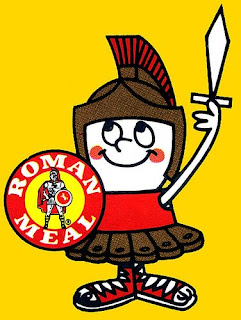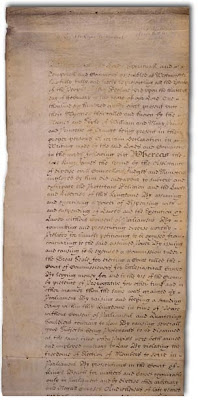Seventeen years ago today is when my sister Cynthia sent that charmingly assertive and passionate, red and white Blenheim Cavalier King Charles Spaniel, Tara's Miss India, from Miami straight to San Francisco. What an extraordinary gift! What wonderful memories!
Dennis’ first and favorite Cavalier, Nell, had died several years before. When she was failing, we made arrangements with the vet at Pets Unlimited on Fillmore Street to come to the house, so that Nell would not end her life in a cold antiseptic doctor’s office. In a way it paralleled Dennis’ arranging a vet to come to his flat on McAllister when Nell gave birth to her five puppies. As Dennis described it, Nell didn’t need any assistance then. In her basket on the rose patterned window seat in Dennis’ yellow bedroom, she was transformed from a cute and dizzy puppy to the very personification of Earth Mother. “I had puppies…..what have you done?”
Now Nell’s fragile tricolor daughter, Lady St. Albans, was ailing. I called her Winkie or ‘Libet. (When my Mother heard that one of the puppy’s names was ‘Elizabeth Lady St. Albans,’ she exclaimed: “Ah, my namesake!”) Winkie’s end seemed near, but we decided not to call the vet. Everything seemed to be progressing naturally.
One Thursday I went to work and told my fellow supervisor, Dale Ilderton, that one of my dogs appeared to be dying. A few minutes later my boss, Francean Rible, came and told me to go home to be with her. I spent the day holding her in my lap or taking naps with her on the bed. For years ‘Libet had slept next to me and cuddled so close that Dennis remarked you'd have to separate us with a knife.
Late in the afternoon I needed to leave because I was in a Thursday night show at the Bohemian Club. It was Vaudeville Night. Dennis came to dinner and the show. He was dressed in a business suit and appeared to have a good time. On the way home, after getting off BART at 24th Street, Dennis turned right on Bartlett Street and stopped by a front yard rose garden to tell me that Winkie had died fifteen minutes after I had left the house. We wept, then continued home.
Dennis’ Irish side was soon apparent. Lady St. Albans was lying in state in a basket in the middle of the dining room table surrounded by four large silver candlesticks. A white linen napkin covered her body, and on top was a garland of white lilies.
A few days later Dennis had an accident at his temp job. After a cigarette break he rushed in the side entrance to Tiffany’s and slipped on the granite floor and landed on his shoulder. In great pain he went back to work until he started to faint. It turned out he had broken his clavicle. But he didn’t find that out until more than two hours later.
I think he missed only a single day of work, then returned with his arm in a sling. He was not going to lose that job at Tiffany’s. People were so impressed that soon he was offered a permanent position.
Meanwhile my sister Cynthia in Florida was considering sending a plant to honor the memory of ‘Libet. But Cynthia decided that she’d rather give us a puppy. She checked online and learned that puppies were out of her price range, so next she considered two and three year old dogs. Cynthia found a very attractive Blenheim with a breeder north of her, but concluded the dog was rather snooty. Then she visited another three-year-old Blenheim (red and white) with a breeder south of her in Homestead. This dog had a funny looking mouth— slightly undershot— but appeared to have a wonderful personality.
So Cynthia telephoned me to ask if it would be appropriate to give a dog to Dennis. I replied that it was extremely thoughtful and generous of her, but that Dennis was very particular and would want to choose his own dog. Furthermore, he would insist on a puppy because he would want to train the dog from scratch.
A few days went by. Then casually I mentioned Cynthia’s offer to Dennis. He stopped and thought about it for a few minutes, then said that it might not be such a bad idea to have an older dog. Lord Dundee was an older dog himself and might have difficulties adjusting to a rambunctious puppy.
So I called Cynthia back and asked if we could reconsider her offer. Cynthia went to Homestead and bought the dog and brought her home to Stuart. After two days, her husband Bob said they needed to send India to California immediately. He was afraid that Cynthia would bond with the dog and never give her up. So Bob and Cynthia got up at three in the morning to drive to Miami International and put a spunky little red and white dog on a direct flight to San Francisco.
I took the day off work, rented a car, and drove to SFO with my tricolor Lord Dundee in the back seat on December 23rd 1997. I parked on the roof of the parking garage and opened the rear windows a crack so Dundee had air.
At baggage claim I waited for an attendant to bring the airline kennel. I took a photo as he approached. When I opened the grated door, out pranced a happy, assertive— rather comic looking— red and white Blenheim girl. Her mouth was a little undershot. But she had beautiful markings and a luxurious coat.
I carried her in the kennel until we got to the car. Then I put her on a leash, opened the door and introduced her to Lord Dundee. He didn’t know what to think of her at first. I got a good photo of their meeting.
After taking Dundee home, I drove downtown and parked near Union Square. Carrying India in my arms when I got to the front door of Tiffany’s, I walked to the silver room in the back. With India on one arm and a camera in the other hand, I spoke from behind and said: “Mr. Graham” and Dennis turned from his customer and broke into a wonderful grin.
I was home only a few days. This was the day before Christmas Eve. After midnight mass at St. Francis, we celebrated Christmas early in the morning – or, middle of the night, as was our custom— before flying to Pennsylvania to spend a week with Mother at her retirement community, Green Ridge Village, in Newville near Carlisle.
All four children, Julie, Sherry, Cynthia and I, spent several days with Mother to enable her to divide her many possessions among us as she moved from her own retirement house into a single room in a main building for assisted living. She had waited until all of us could be there.
While I was gone, Dennis spent a lot of time with India. Her formal name was Tara’s Miss India. There was a Gone With The Wind theme to her litter. She was named for Scarlett O’Hara’s sister. Indeed, one of her own sisters was named Tara’s Miss Scarlett.
For the first few days Dennis said to her: “You’re not as beautiful as Nell. You’re not as cute… you’re not even as clever as Nell.” But then one day, Dennis picked her up in his arms and said: “You’re not as beautiful as Nell. YOU are as beautiful as INDIA….You are my India Pudding!” From that moment on she was completely his.
My sister Julie used to have a large St. Bernard named Pudding. Partly as a joke, we called our nineteen pound Blenheim Cavalier “India Pudding” and it stuck.
One time Dennis came home from work and greeted Lord Dundee, lying on the edge of the bed (with a pile of pillows leading to the trunk to help him to get up). He was a distinguished senior dog entitled to special privileges. India observed all of this, pranced over, hopped on the bed and whacked Dundee on the head with her paw. She considered that she was entitled to be greeted first!
Dennis used to comment on India Pudding’s assertive personality: “What would you expect from a dog born on Elizabeth II’s birthday, the day after Adolf Hitler’s … with a jaw like Mussolini!”
India loved to spend time with Dennis— in the garden, in the kitchen, especially in the car (when we had one) Of course, all our Cavaliers have had a passion for riding in cars.
When Dennis and I took our Mediterranean cruise from Rome to the Greek isles, ending in Istanbul, we left our three dogs (by that time Dundee had gone and I had bought my black and tan boy Rupert— named for Prince Rupert of the Rhine, nephew of Charles I, and commander of the Royalist cavalry during the English Civil War— and as a fee for his paternity duties, Rupert had ransomed his ruby sister, Rose) with our friend Nijole Adams in Sebastopol. Nijole had seven or eight Cavaliers of her own and slept with all them in a large king-size bed in the middle of her bedroom. Our dogs just joined the crowd.
From Rome, Dennis and I called Nijole to check on the dogs. Nijole said that Rupert was fine. What a sportsman. He loved to play ball. He never stopped! Her arm was about to fall off! And Rose… what a sweetheart. She was rather shy and stayed by herself a lot.
And India…how is Miss India? Nijole paused…….then slowly said: “Everybody knows she’s Queen!”
So India Pudding had joined a household with eight other Cavaliers …….and took over!!
Later when Dennis was let go from Lang Estate Jewelry, he helped out occasionally at our friend Chris Wahlgren’s rug store on 24th St. India loved to spend the time alone with Dennis at the store (since Rose and Rupert had proved unreliable, or rather too predictable with accidents on the rugs.) India romped over the rugs and exalted being with Dennis, whom she adored.
In his twittier moments, Dennis called India Pudding by the sobriquet “Contessa Zuppa Inglese” a special Italian pudding. How he loved her!























